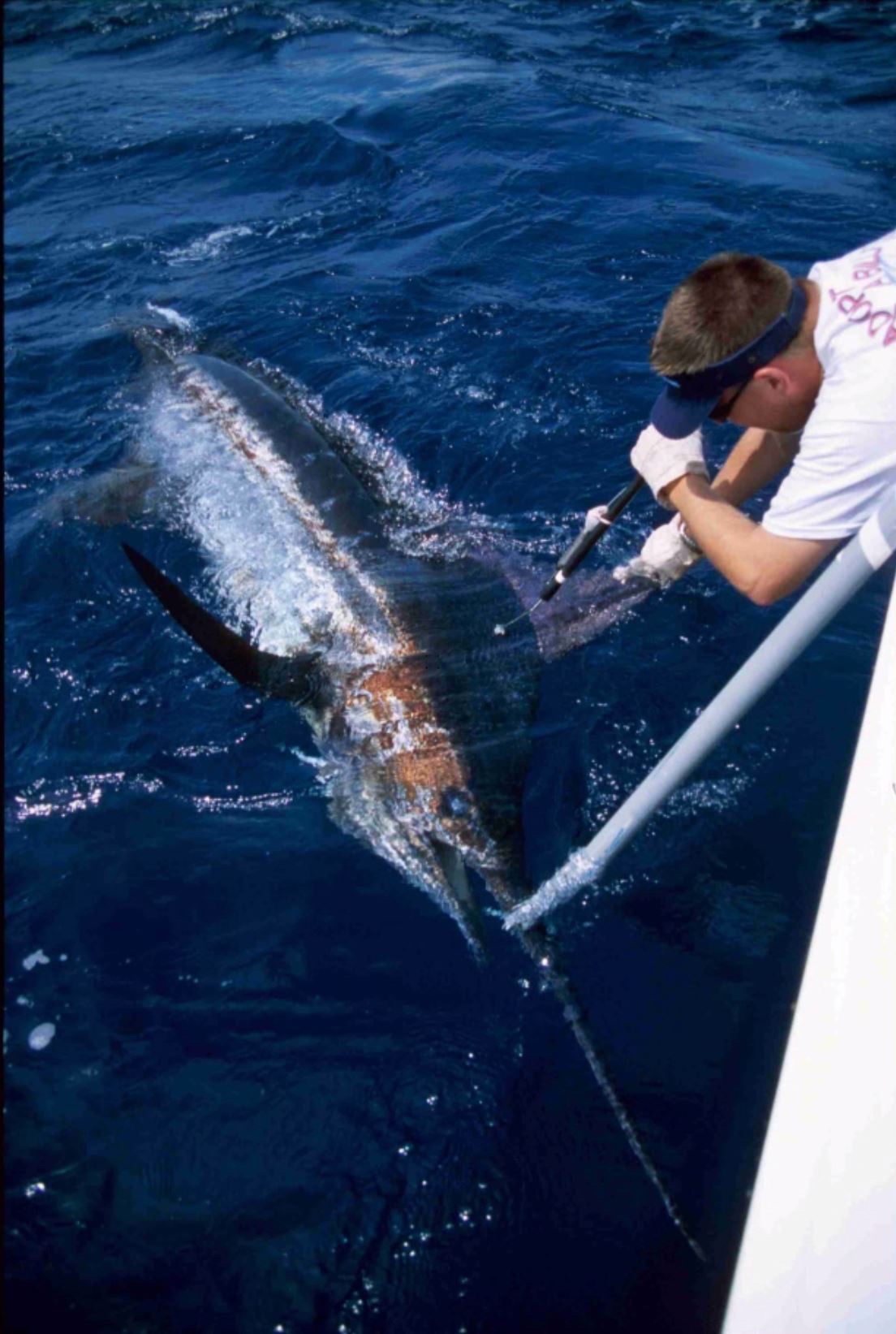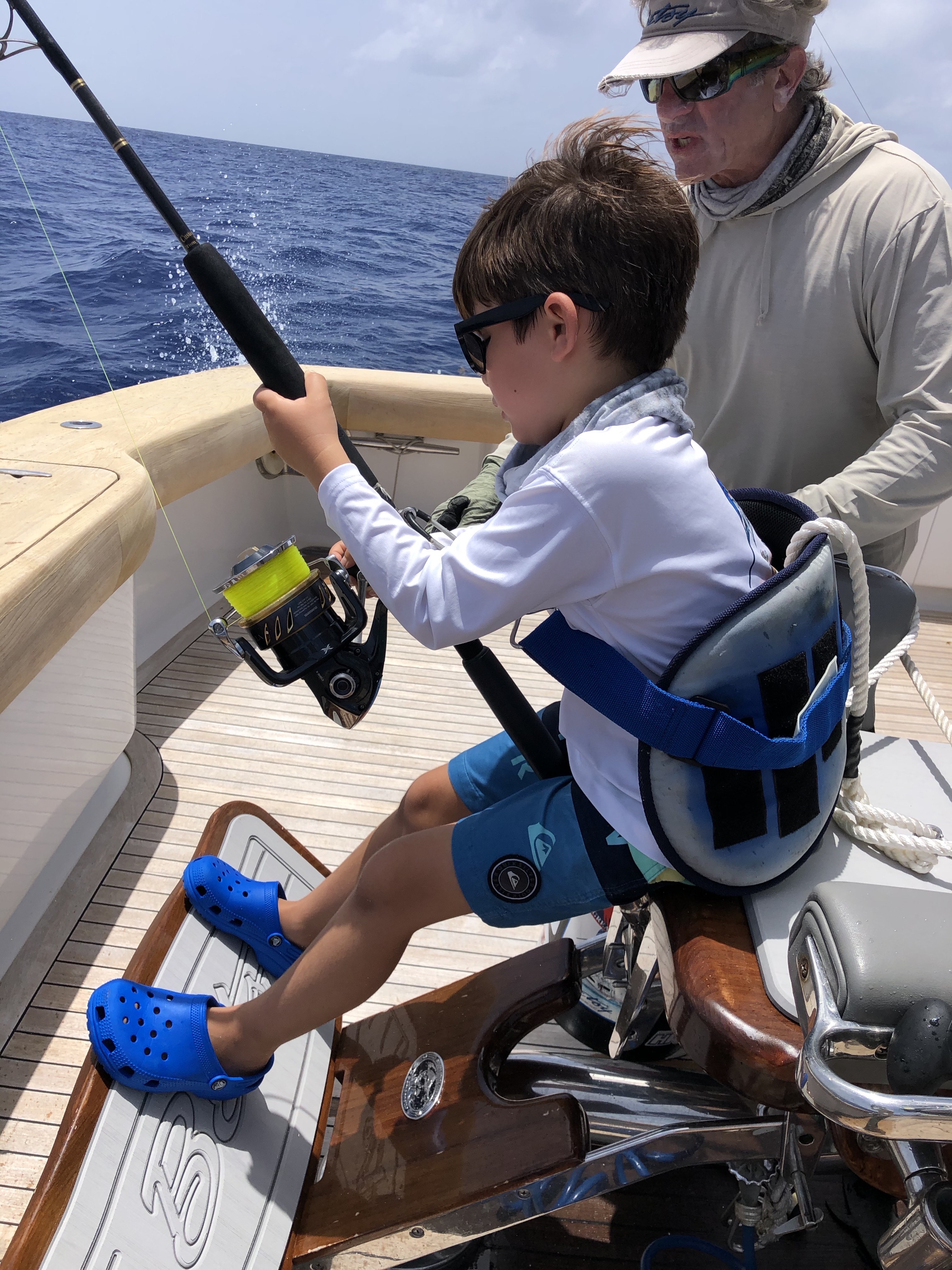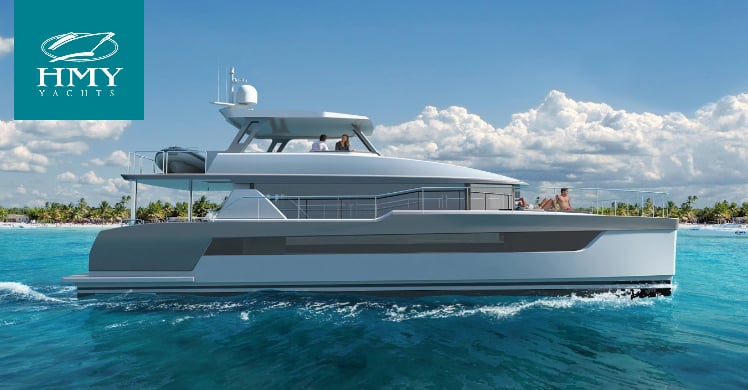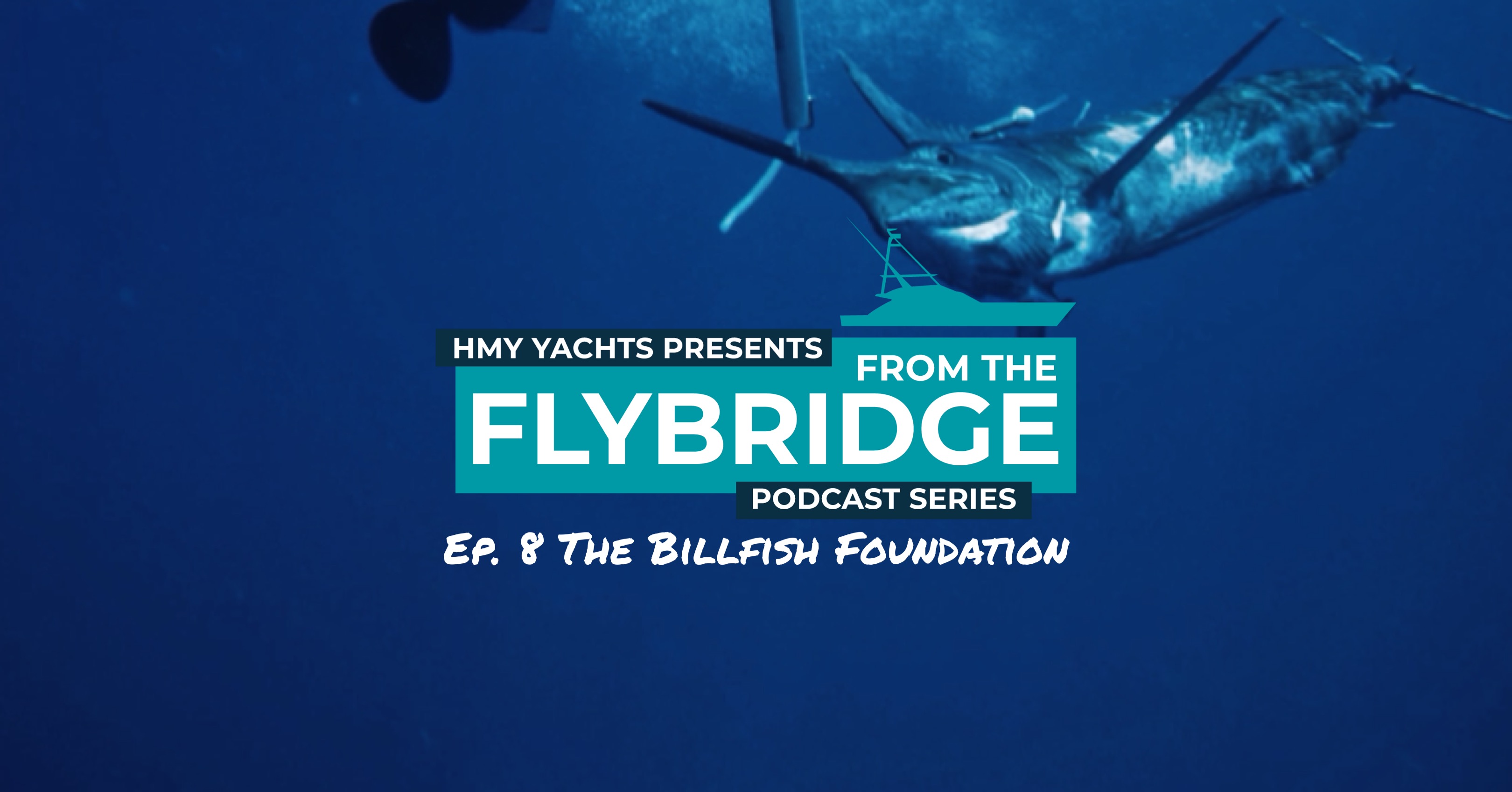
From The Flybridge #8 – The Billfish Foundation
We are honored to have Ellen Peel and Peter Chaibongsai from The Billfish Foundation on the podcast to educate us on how we can all do our part to ensure the sportfishing world stays alive and thriving for generations to come. The Billfish Foundation (TBF) isn’t solely an environmental/conservation group. Their passion lies in the sport of fishing. Every day they are working to ensure billfish live long enough to grow large enough for you to continue to win big at tournaments. Today we tackle common misconceptions and explain how anybody can help make sure their grandchildren will have the opportunity to enjoy this sport one day.
Here is a preview of the podcast below. For the whole episode, click here.
Alexie Creary: Give me two of the greatest successes that you've had on your journey through collecting data, preserving what we have, and making sure that it's here in the future.
Ellen Peel: Two experiences where we defeated two environmental groups, which TBF is not one, to have white marlin listed under the Endangered Species Act. Now, that's a federal law, and let me make it clear if any fish is listed under that Act, depending on the level, and there are two levels, endangered and threatened. If it were to show up as endangered it means none of us can put a line in the water because it would legally become a “take,” which means you've disrupted this species environment. So all of us, whether we're commercial fishing or recreation, you are tied to the dock. The other level, which is less severe, threatened, would still put greater restraints on all of us. TBF is about responsible fishing. You know, we're the leader on billfish conservation and if our science has shown they were in that type of trouble, we would have started curtailing regulations and making measures to ensure the species continues. And so those are two big victories that we are proud of. Now pay attention here, an environmental group, a bunch of them just recently submitted a petition to have shortfin mako listed. Now guess what? If that's listed, we're all going to be in trouble. And so, you know, we are thinking because other species have not been listed, that that will not be successful, but never, ever sit and quietly think they're not doing anything. They never sleep, literally. They're always watching out and they have a great number of people. I mean, these environmental groups have a hundred, two hundred thousand members. And so, they have the money. They have the attorneys and the scientists to push all these things so defeating two environmental attempts to list these species is something that we're very proud of.
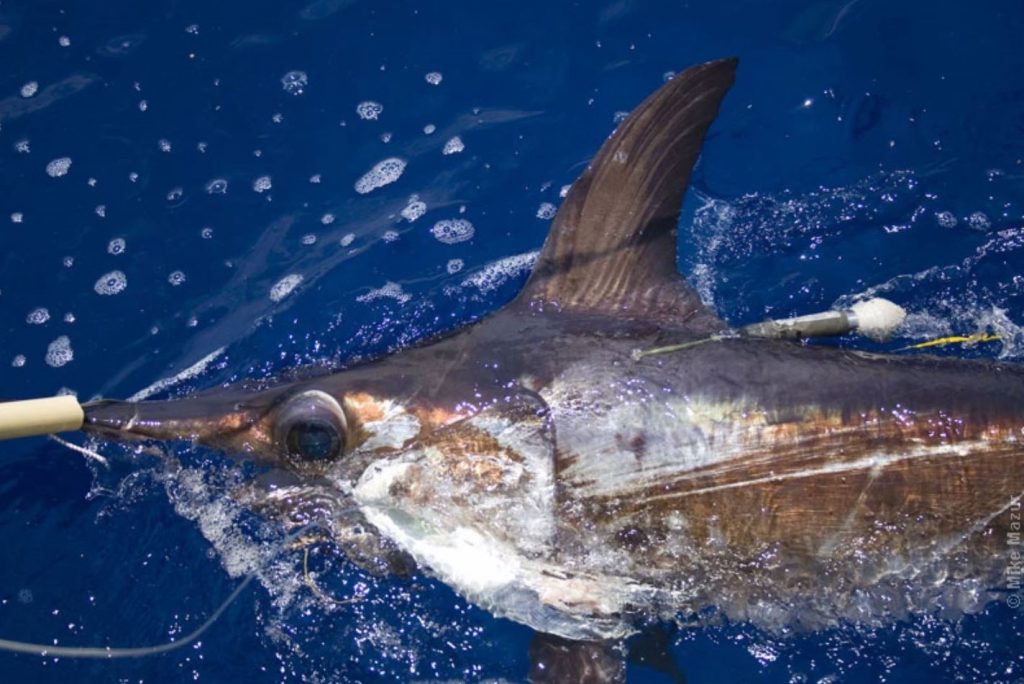
Alexie Creary: As you should be. That's an incredible accomplishment and I'm sure everyone fishing the white marlin Open thanks you.
Ellen Peel: Well, I certainly hope so, because last year, there was great concern in our community. The government reported that the US recreational fishery had exceeded its internationally allocated fish and the US government agreed upon the allocation of 250 Atlantic marlin. That means blue and white added together, and that if we had exceeded that, whether you're fishing in Timbuktu or the Dominican Republic, US law follows your boat. So, if fish are landed and killed and exceed that limit, guess what? All bill fishing goes to all releases, as it did last year for a month for the government to go back and verify that we had exceeded that quota. It turned out, fortunately, while we came very close, we didn't exceed it. There was a computer calculating problem. This year some of the tournaments that had landed more white marlin than before have taken the initiative on their own to increase minimum size, which is very good that within the industry they're doing this. But remember, when you're out of the country, particularly those laws follow you, you know, release the fish if you want to keep fishing in the United States, and you want those big-money tournaments to still be able to payout.
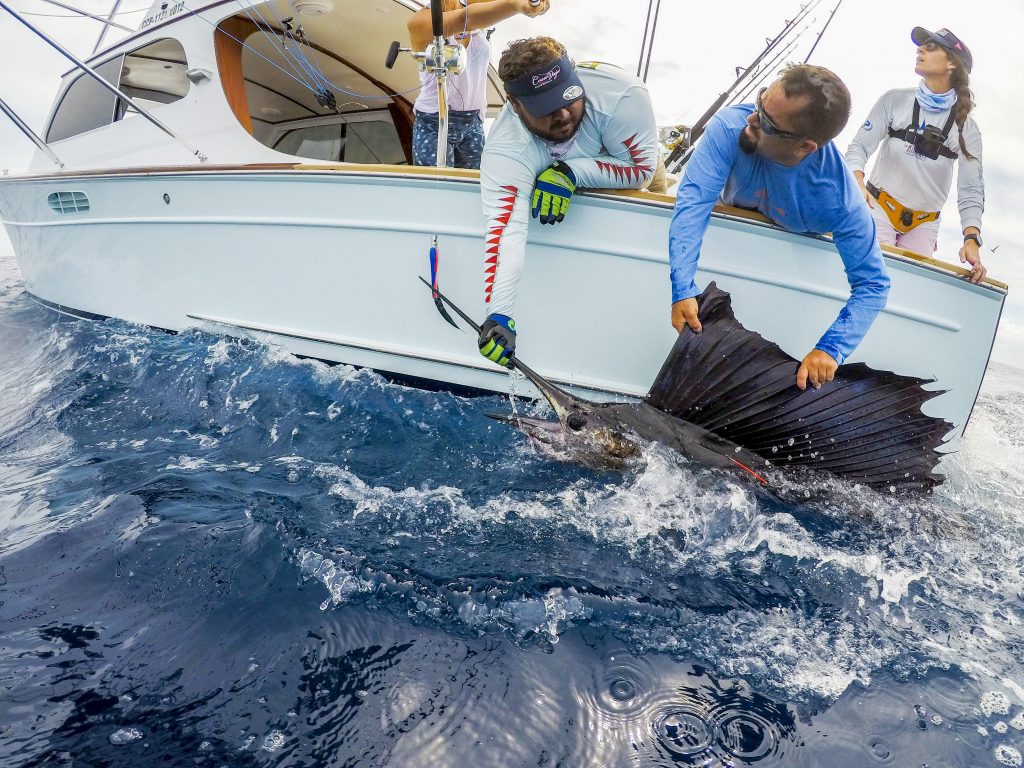
Alexie Creary: Extremely insightful, and those numbers are a great point. We think when we leave the country that we're not reporting to the US. So, I'm really glad that you brought that to light.
Talk to me about what the Bill Fish Foundation needs?
Peter Chaibongsai: It needs support. It needs support not only from our community but from our government as well as other governments. We need people to understand what we're doing is for them, and especially in our community. I think a lot of it gets forgotten that we're there. We're there on the dock sometimes, and we're here in our office, and sometimes people forget that Ellen, myself, and the rest of the staff, work really hard. And like she was saying, before, we do it all for this community, we do it for the love of the community. Yes, there are other extenuating circumstances, right? Obviously. But the support that comes from individuals, organizations, clubs, whether it's financial in kind, is huge because we can then utilize that and play off that to help achieve our goals. And like I said, from the smallest 50 dollars member to the legacy level member to the sponsorship of our gala, as HMY does, those are all huge. Big and small, are all great for us. And I think we mentioned before, you know, 50 dollars might sound like a lot to some people, but if you want to break it down, it's 14 cents a day. 14 cents. We're not asking for a new, beautiful Viking 62', which would be fantastic. We'd love to ride on that someday, but we would love for you guys to think about, hey, when you're out and about with your friends, “Hey, we're really enjoying this tournament. We're really enjoying this community. We're really enjoying this atmosphere and the fishing that we're getting. It's all because of the hard work that the Foundation is doing to achieve that feeling with.
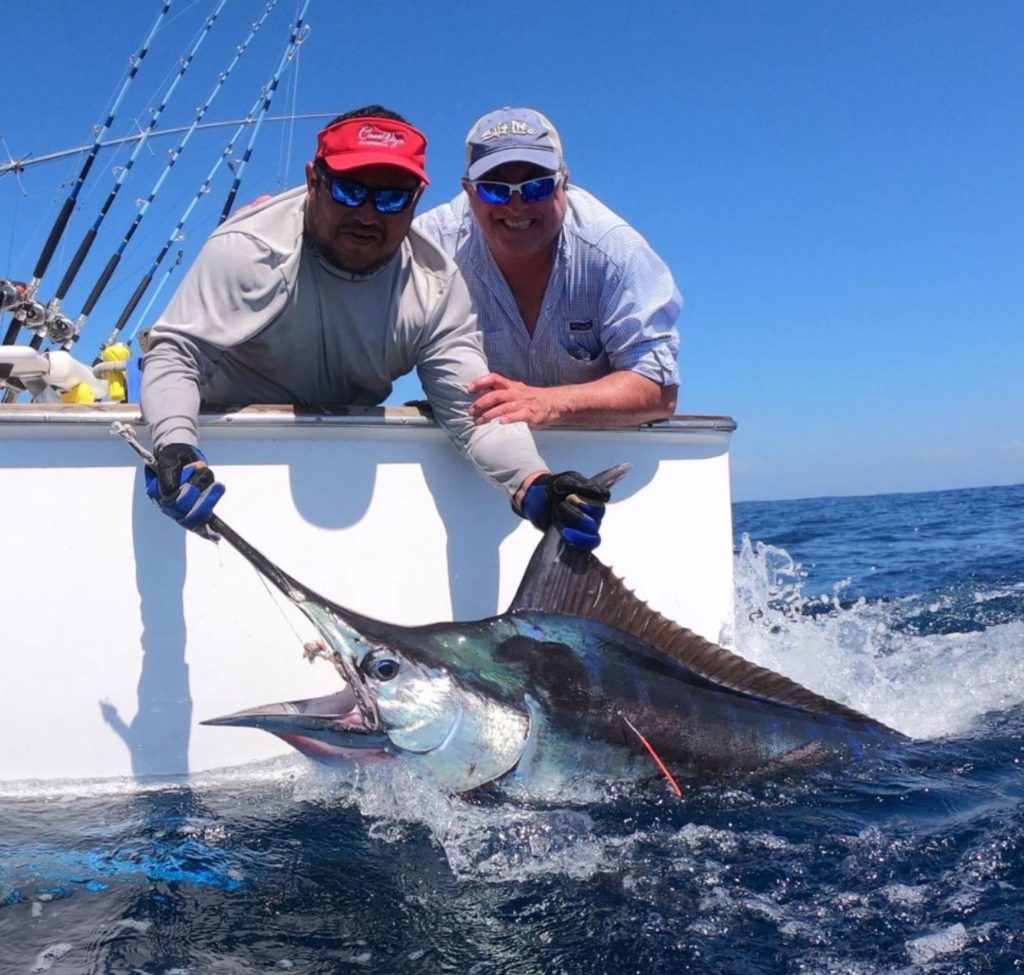
Ellen Peel: And it's not only giving money, which is hugely important in any entity but once you join, make sure you stay in contact. We not only would like to see you tag, but we’d also like to see you send in photos of juvenile billfish and where they were caught. And be ready when we have an action alert to send letters to Capitol Hill in Washington, DC, and we always have the letters prewritten all you have to do is go to the website and click the button but take an interest and understand how it's directly connected to you, your excitement, or perhaps your job.
Alexie Creary: I'm going to do a call to action right now. We get fishing licenses every year. Why not? Right. When you do your fishing license every year, you renew your membership, become a lifetime member.
To listen to the full podcast please click the link below. Our podcast series is available online on Apple, Spotify, and www.HMY.com.
If you’re interested in reaching out to The Billfish Foundation or our Host and HMY Yacht Sales Professional Lexie Creary, you can find them here:
The Billfish Foundation:
Facebook: The Billfish Foundation
Instagram: @thebillfishfoundation
Twitter: @TagBillfish
YouTube: The Billfish Foundation
Linkedin: The Billfish Foundation
Alexie Creary: @yachtsbylexie

